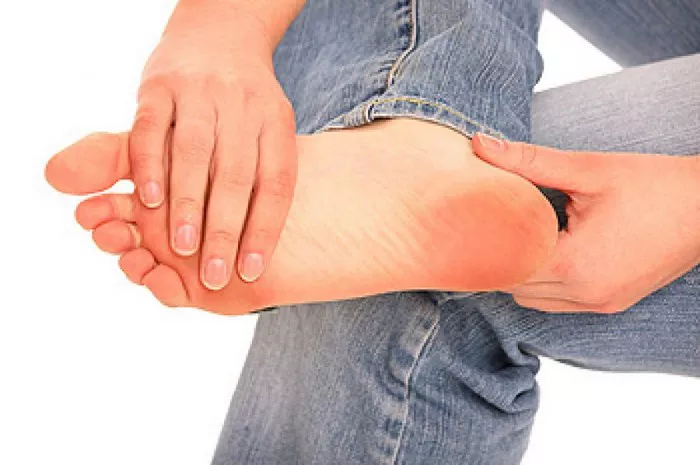Ringworm, or tinea, is a common fungal infection that affects the skin, hair, and nails. It can cause red, itchy patches and is often mistaken for other skin conditions. One of the most common concerns for individuals experiencing ringworm is whether the infection will return after treatment. In this article, we will explore ringworm, its treatment, and the factors that contribute to its recurrence.
What is Ringworm?
Ringworm is not caused by a worm, but by a group of fungi known as dermatophytes. These fungi thrive in warm, moist environments and can infect various parts of the body, including:
Scalp: Tinea capitis
Body: Tinea corporis
Groin: Tinea cruris (jock itch)
Feet: Tinea pedis (athlete’s foot)
Nails: Tinea unguium
How is Ringworm Transmitted?
Ringworm spreads through direct contact with an infected person or animal. It can also be contracted by touching contaminated surfaces, such as towels, clothing, or bedding. The fungi can survive on these surfaces for long periods, making it easy for the infection to spread.
Symptoms of Ringworm
The symptoms of ringworm can vary depending on the affected area, but common signs include:
Red, itchy patches: The rash may be circular and have raised edges.
Bald patches: In cases of scalp infection, hair may fall out in round patches.
Scaling and flaking: Skin may become scaly and start to peel.
Discoloration of nails: Infected nails may become discolored, thickened, or brittle.
Treatment Options for Ringworm
Treatment for ringworm typically involves antifungal medications. The choice of treatment depends on the severity and location of the infection.
Topical Antifungals
For mild cases, over-the-counter antifungal creams, lotions, or powders can be effective. Common active ingredients include:
- Clotrimazole
- Miconazole
- Terbinafine
These medications are applied directly to the affected area and usually require daily application for several weeks.
Oral Antifungals
For more severe or widespread infections, doctors may prescribe oral antifungal medications. Common oral treatments include:
- Terbinafine
- Itraconazole
- Fluconazole
These medications are typically taken for several weeks and are effective in eliminating the infection from within.
Home Remedies
Some individuals may consider home remedies for ringworm, such as:
Tea tree oil: Known for its antifungal properties.
Apple cider vinegar: Can be applied topically to the affected area.
Garlic: Has natural antifungal effects and can be used in topical applications.
While these remedies may provide relief, they are not a substitute for professional medical treatment.
Can Ringworm Come Back After Treatment?
Yes, ringworm can return after treatment. The recurrence can occur for several reasons:
Incomplete Treatment
One of the most common reasons for recurrence is incomplete treatment. Patients may stop using topical antifungals once symptoms improve, but the fungi can still be present. It is essential to complete the full course of treatment, even if the rash appears to be gone.
Reinfection
Reinfection can happen if an individual comes into contact with the fungus again. This can occur through:
Contact with infected individuals: Sharing personal items like towels, clothing, or hairbrushes can lead to reinfection.
Pets: Animals can carry ringworm and transmit it to humans.
Contaminated surfaces: Fungi can live on surfaces for extended periods, so touching contaminated items can lead to reinfection.
Underlying Conditions
Certain underlying health conditions can make a person more susceptible to ringworm. Conditions that weaken the immune system, such as diabetes or HIV/AIDS, can increase the likelihood of recurrence. Managing these conditions is crucial to preventing ringworm.
Environmental Factors
Ringworm thrives in warm, moist environments. Areas with high humidity, such as locker rooms or public showers, can contribute to the spread of the fungus. Individuals should take precautions in these settings to reduce the risk of reinfection.
Preventing Ringworm Recurrence
To minimize the chances of ringworm returning after treatment, consider the following preventive measures:
Practice Good Hygiene
Wash hands regularly: Use soap and water, especially after contact with animals or people who may be infected.
Keep skin dry: Dry areas prone to moisture, such as the groin and between toes.
Avoid sharing personal items: Towels, clothing, and grooming tools should not be shared.
Wear Breathable Clothing
Choose clothing made from breathable fabrics to reduce moisture buildup. Cotton is a good option as it allows air circulation.
Avoid Moist Environments
If possible, avoid public showers and locker rooms. If you must use them, wear flip-flops or sandals to minimize contact with the floor.
Regularly Clean Surfaces
Regularly clean and disinfect common surfaces in your home, especially in areas prone to moisture, like bathrooms and kitchens.
Treat Pets
If you suspect your pet has ringworm, take them to a veterinarian for treatment. Ensure that any infected pets are treated promptly to prevent spreading the infection to humans.
When to See a Doctor
If you suspect you have ringworm or have treated it but still experience symptoms, see a doctor. Signs that you should seek medical advice include:
Persistent rash: If the rash does not improve after treatment.
Severe itching: If itching becomes unbearable.
Spread of infection: If the rash spreads to other parts of the body.
Nail involvement: If you notice changes in your nails, such as discoloration or brittleness.
Conclusion
In summary, ringworm can come back after treatment, but there are steps you can take to minimize the risk of recurrence. Completing the full course of antifungal treatment, practicing good hygiene, and avoiding environments where the fungi thrive are crucial. If you continue to experience symptoms or have concerns, consult a healthcare professional for guidance. By being proactive and informed, you can reduce the chances of ringworm returning and maintain healthy skin.
Related topics:


























